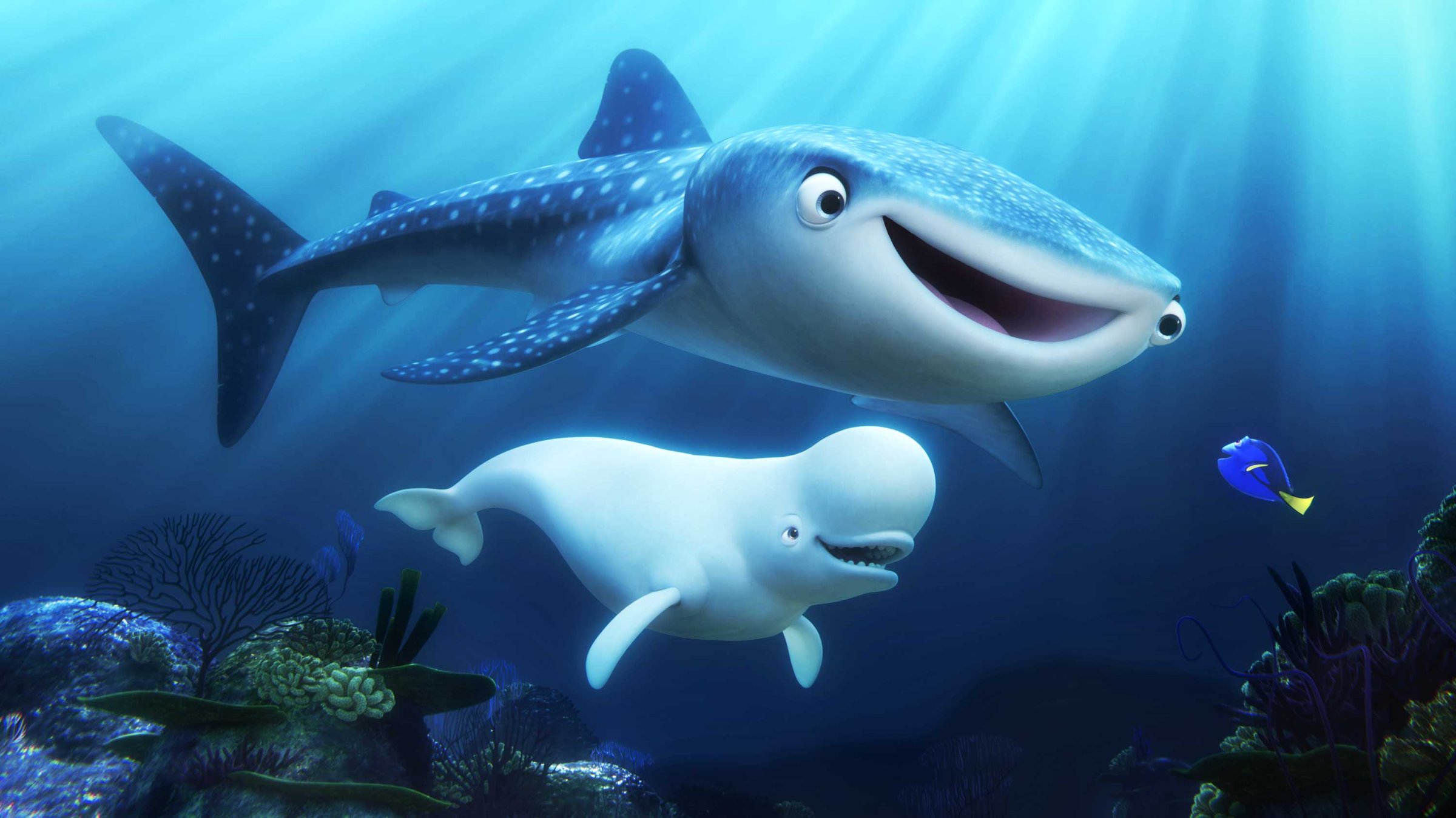
Just as a cigar is never really just a cigar, a Pixar movie is never really just a Pixar movie. Grownups delight in pointing out that these painstakingly crafted entertainments are always, deep down, about important things: the inner life of preteen girls, the need for family and community, the recognition that it’s O.K. to be different or to feel overwhelmed by everyday life. Meanwhile, kids just come for the talking fish.
And in the case of Finding Dory, what a talking fish! One of the most memorable supporting players in Pixar’s enormously beloved 2003 Finding Nemo, in which a drain proved to be the salvation of one lost little barrier-reef clownfish, was Dory (voiced by Ellen DeGeneres), a cheerful ocean denizen with short-term memory loss. In that movie Dory—technically a regal blue tang, only Pixarlated into a cobalt blue wedge of wriggliness with googly eyes—was key in helping dad clownfish Marlin (Albert Brooks) find the missing Nemo. Both return in this new adventure, along with Nemo (now voiced by Hayden Rolence), only this time it’s Dory who’s lost, albeit in a more existential way.
A flashback shows baby Dory being schooled by her doting, sensible parents (Diane Keaton and Eugene Levy) in how to manage her memory problems. But an undertow whisks her away from them, and she’s never able to find her way back. Dory grows to adulthood unable to remember where she came from, though she, Marlin and Nemo form a happy enough makeshift family. Then Dory begins to recall scraps of her past and vows to find the parents she lost. Her quest takes her to a marine wildlife rehabilitation facility—but also separates her from Nemo and Marlin, testing the bonds of kinship and finship.
It’s easy enough to tease out Finding Dory‘s significant themes and teachable moments. But anyone can come up with a noble humanistic idea, or two, in an instant. It’s much more challenging to dream up a whole movie’s worth of freewheeling, air-bubble-light jokes and inventive sight gags. In the end, the real value of Finding Dory (directed by Andrew Stanton and Angus MacLane) lies in its goofy effervescence. Although DeGeneres’ Dory, with her breathless stream-of-consciousness patter, is unavoidably likable, the cast of supporting characters here may be even better. Ed O’Neill supplies the voice of Hank, a selfish, irascible octopus who uses his gift for camouflage in some outlandish ways—when we first see him, he’s masquerading as the dangling kitten in the classic Hang in there! poster, a juxtaposition of weird visual ideas that shouldn’t go together at all but qualifies as a small flash of genius.
Other anthropomorphized beasties include Destiny and Bailey (Kaitlin Olson and Ty Burrell), a nearsighted whale shark and a beluga whale with ESP-like sonar who become a sort of marine dream team. There’s also a duo of sea lions (Idris Elba and Dominic West, in a mini Wire reunion) who are proprietary about the particular rock they’ve chosen to lounge on, and if their cockney accents surprise you—well, you can’t really know where a sea lion comes from just by looking, can you?
Best of all is Becky, a scraggly seabird who’s clearly barmy–you can tell by her every-which-way red eyes and the way her feathers stick out at jagged angles, a perpetual avian bad-hair day–but nevertheless has a sterling mothering instinct and an unwavering commitment to doing the right thing. Her voice (provided by Torbin Xan Bullock) is really just a squawk, but it’s a squawk with soul, and she’s emblematic of everything that’s buoyant and zigzaggingly right about Finding Dory. Come for the life lessons. Stay for the bird with the crazy eyes.
More Must-Reads from TIME
- Why Trump’s Message Worked on Latino Men
- What Trump’s Win Could Mean for Housing
- The 100 Must-Read Books of 2024
- Sleep Doctors Share the 1 Tip That’s Changed Their Lives
- Column: Let’s Bring Back Romance
- What It’s Like to Have Long COVID As a Kid
- FX’s Say Nothing Is the Must-Watch Political Thriller of 2024
- Merle Bombardieri Is Helping People Make the Baby Decision
Contact us at letters@time.com